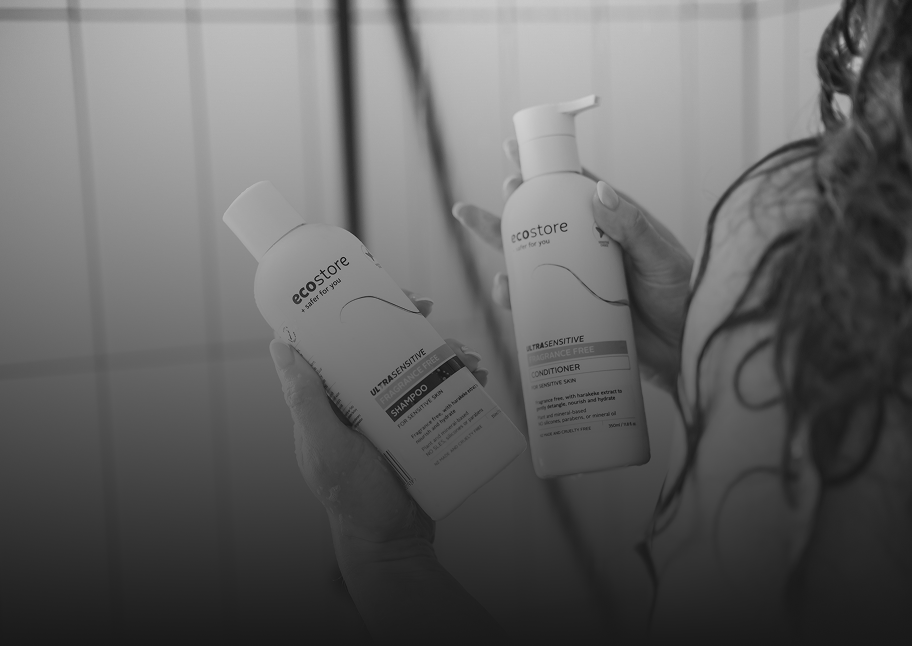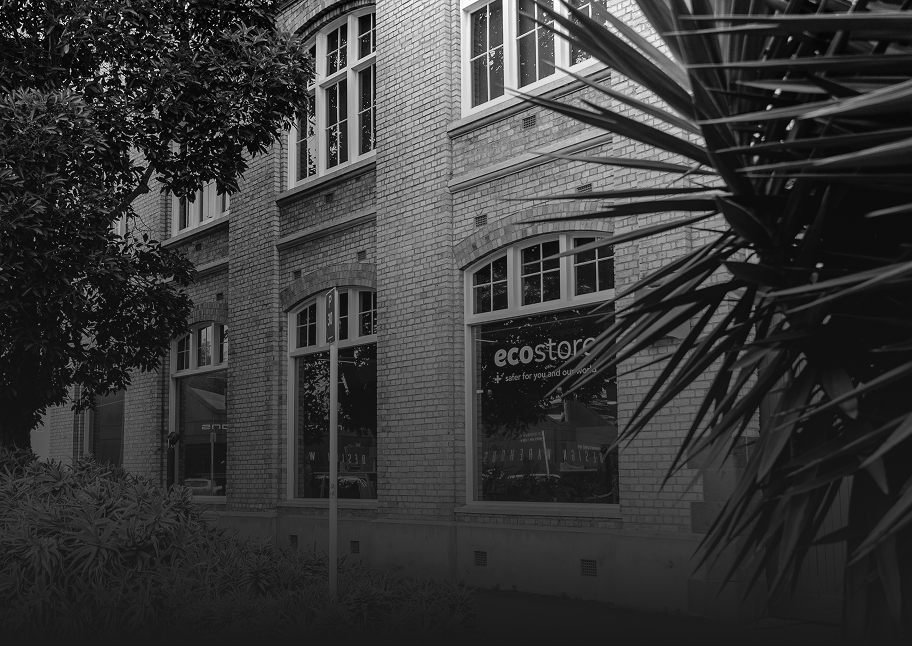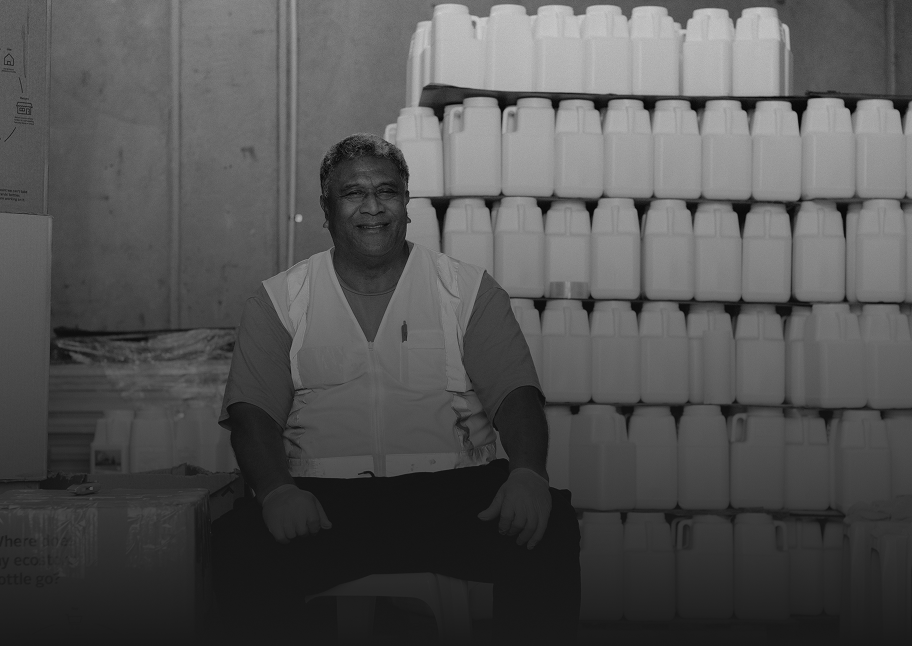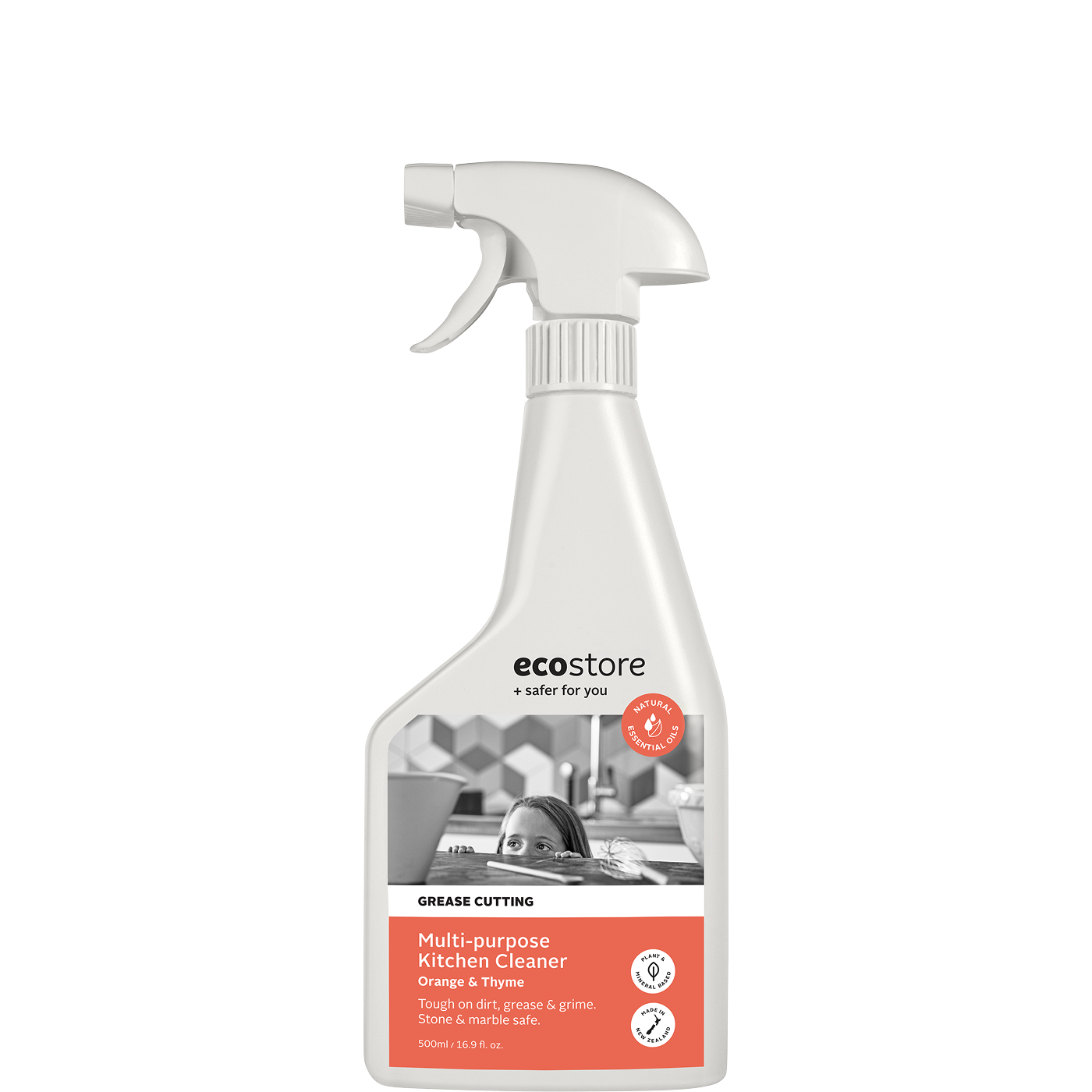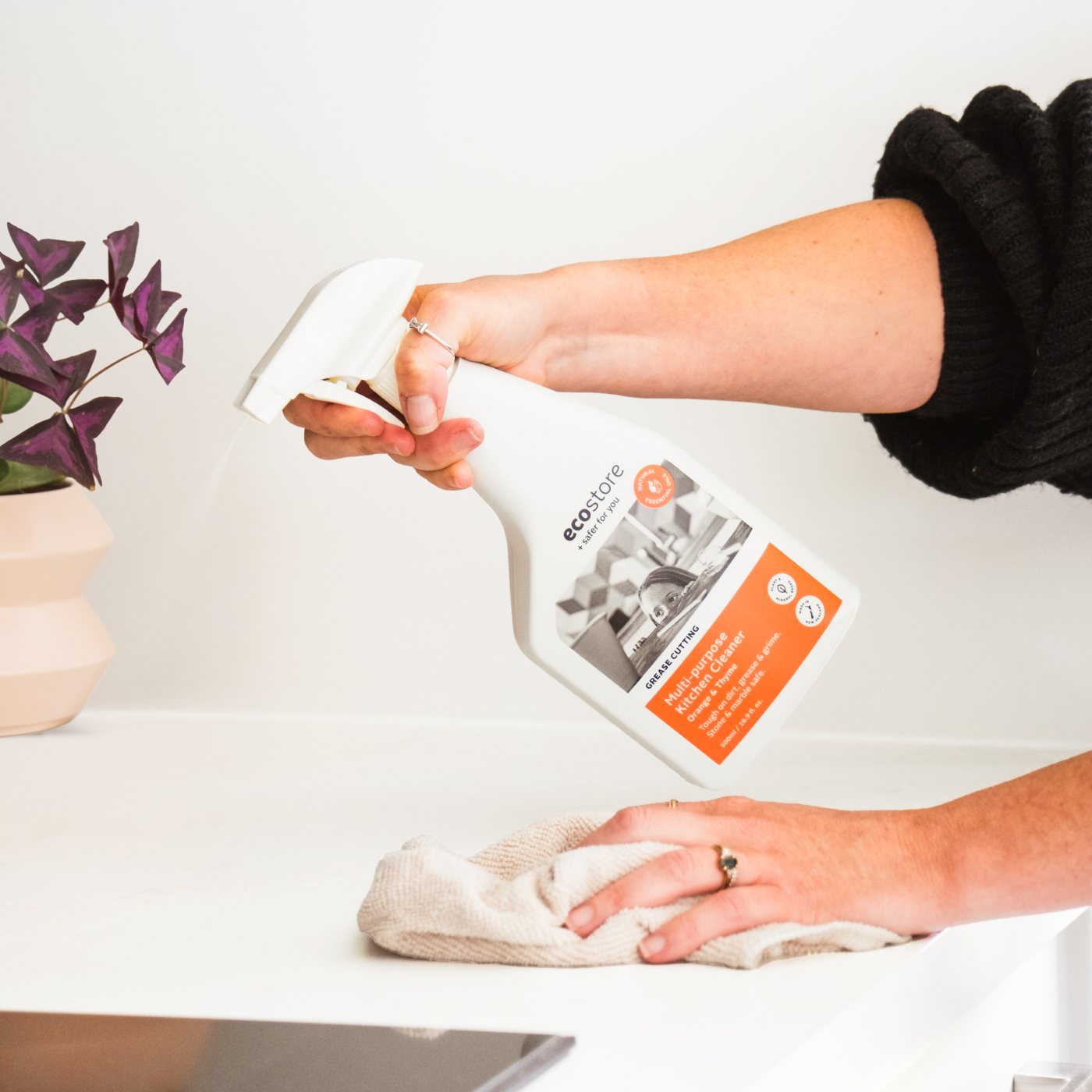We recently caught up with Tony, our general manager of operations and procurement at our manufacturing facility Eco Tech. He shared with us how supporting his local community has been a key part of family life and how he's working more towards living off the land.
1. Tell us about yourself
I've been working for Eco Tech for 12 years. I'm the general manager of operations and procurement, but because I've been here for so long I'm in some ways a bit of a go to person, so my role tends to be quite varied. I am involved with the export team at ecostore, and help out with research and development and new product development, too. I've been here long enough to experience a lot of growth over the years, which is really cool. When I first started we had one staff member, and now we have expanded to 60, operating multiple shifts. It's been exciting to be a part of ecostore's growth.
I live in the Auckland suburb of Point Chevalier, but I work on the east side of the city in Pakuranga. (ecostore was founded in New Zealand and has its global headquarters in Auckland, and it launched into Australia in 2004). To avoid the traffic I leave home at 6am and leave work at 3pm and then do a couple of hours work from home at the end of each day. I'll try to arrange off site meetings that coincide with me heading home, so that I am travelling efficiently in my Prius.
I've got two daughters who I spend a lot of time with. My eldest is 16 and my youngest is 14. Both play soccer for a local club and school and my youngest also plays lacrosse. I'm a former manager and coach of their teams, and often on the weekends I play taxi driver for all of their sport and socialising. For the last three years, I've also been playing soccer for Western Springs, which has been fun during winter.
2. Can you share with us some of the things you do to live more sustainably?
I have a permaculture garden at home. At the moment we are in the middle of preserving fruit from an 80 year old pear tree. When we first brought our place 15 years ago, we cleared it of all the decorative plants and planted a whole lot of fruit trees. We've got pears, apples, oranges, mandarins, lemons, feijoas, plums and kiwifruit- which hasn't fruited as yet but we're working on that one! We also have raised garden beds, and the primary objective of these is to grow seasonal salad vegetables, which works really well.
We've put in a solar hot water system some years ago at home and are trying to model our life around the local community so when the girls finish school, my partner Ruth and I will be able to engage a bit more with our land and the community. We're also planning on having rainwater harvesting tanks at home in the near future, which would feed our washing machine, dishwasher and toilet. As it is with many homes it's a constant work in progress!
My partner Ruth was part of transition towns in Auckland for a number of years, which was an initiative to create some resilience within communities. This included supporting local purchasing groups and getting people excited about the local environment that they live in. Moving to Point Chevalier was a considered decision for us years ago. The plan was to keep the girls education local using the public schooling system, it's a really beautiful part of Auckland to live.
3. What do you think have been the main benefits of leading a more sustainable lifestyle?
Putting down our roots in one area, getting to know our neighbours and schooling our daughters locally has helped us to build a strong sense of community. It's nice, we'll often bump into someone we know at the supermarket or on the street walking to the shops. And for our daughters to still be friends with the kids they were mates with when they were little is really nice. The community lifestyle has felt really supportive, there seem to be a lot of like-minded people that live here, and that has been key for us.
Growing our own produce means that we are constantly trying to keep our soil rich. So we compost everything. This not only reduces our food waste to landfill, but also means we are putting a whole lot of nutrient back into the garden. Raising our girls this way has taught them to be more mindful consumers too. When they were younger they won prizes at primary school based on who had the least waste in their lunch box, and now they both actively try to reduce the packaging they use, consider what they are buying, like buying clothing from Trademe or op shops. I think that teaching younger generations about living in an environmentally responsible way is really important. This planet belongs to our children's children after all!
By using plant based cleaning and personal care products at home we are reducing our toxic load, which is good for both us and the environment.
4. Do you have any suggestions for those looking to lighten their environmental footprint?
Seeing what is going on with our planet at the moment, Global warming, ocean acidification, species extension etc. it is quite overwhelming. It's easy to think that we can't make a difference, and that because it's all too big, we don't have a voice. This is wrong, we can make a difference!
If we all made small changes, collectively we can have a massive impact. This can be really small things like walking to the shop as opposed to driving, taking a cloth bag with you when you go shopping so you don't use a plastic bag over the counter, have more vegetarian meals each week.
Right the way down to using products that are better for the planet.
5. What is your favourite ecostore product and why?
I'm a fan of the hard soaps. So bringing the manufacturing of these in house to the Eco Tech factory recently was really cool. The lemongrass one is my favourite... no the coconut...no the lemongrass!
Read more

During winter we are less likely to spend time outside or keep windows open, so it's important to ensure our homes are kept warm, dry, and free of dust and mould. Many of us start feeling the need ...

We were lucky enough to attend a recent Wellness Retreat in Auckland, where naturopath and medical herbalist Selina Singh hosted an educational workshop on natural ways to support overall health an...

